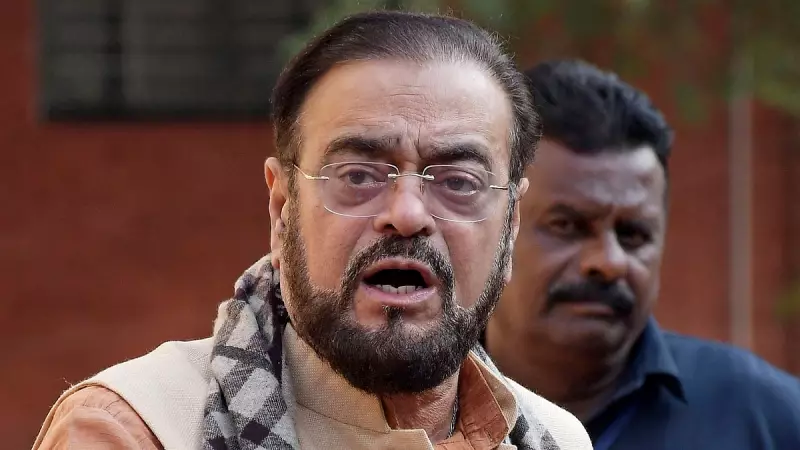
Mumbai witnessed high political drama on Wednesday as Bharatiya Janata Party workers descended upon the residence of Samajwadi Party leader Abu Azmi, creating a tense standoff that echoed through the city's political corridors.
The Flashpoint That Ignited Protests
The confrontation erupted after Azmi publicly declined to recite the national song 'Vande Mataram,' citing religious reasons. This refusal became the catalyst for BJP activists to mobilize outside his home, demanding an explanation for what they termed "disrespect toward national symbols."
Protesters carried placards and raised slogans, their voices growing increasingly impassioned as the demonstration gained momentum. The scene outside Azmi's residence quickly transformed into a political battleground, with security personnel working to maintain order amid the growing tensions.
A Clash of Ideologies
This incident represents more than just a political protest—it underscores the deepening ideological divide in Maharashtra's political landscape. The BJP has consistently positioned itself as the guardian of national pride and cultural values, while opposition parties often find themselves navigating complex religious and cultural sensitivities.
Azmi's stance reflects a longstanding position among certain Muslim leaders who maintain that chanting Vande Mataram conflicts with Islamic principles against idol worship. This theological position has repeatedly collided with nationalist sentiments in India's complex political arena.
Security Concerns and Political Fallout
Local authorities maintained a strong security presence throughout the protest, aware of the potential for such demonstrations to escalate. Police barricades and personnel formed protective cordons around the property while attempting to facilitate peaceful protest.
The timing of this confrontation carries significant political weight, coming at a time when parties are positioning themselves for upcoming electoral battles. Such incidents often become symbolic flashpoints that can influence voter perceptions and political alliances.
Historical Context of the Controversy
The Vande Mataram debate isn't new to Indian politics. The song, composed by Bankim Chandra Chattopadhyay, has been at the center of political and religious discussions for decades. While it holds the status of national song, its recitation remains optional unlike the national anthem.
Previous governments have issued clarifications about the optional nature of singing Vande Mataram, yet the emotional connect many Indians feel toward the song ensures it remains a potent political symbol.
As the dust settles on today's protests, political analysts are watching closely to see how this incident will reshape the political discourse in Maharashtra and whether it will influence broader national conversations about cultural expression and religious freedom.






